Observing your feline friends for days and you see that cat keeps shaking head but no mites found. Is this problem about the health condition?
Cats sometimes show behaviors including the paw licking, the ear grooming as well as the head-scratching. They are all absolutely normal for such type of pet. But the story turns to another side when they shake their head and itch their ears with an increasing frequency. The cats may undergo issues in ears. Normally, you will immediately think of mites since about 50% of feline ear discomfort is from these culprits. How could it be unless the mite is the cause, however? If cat keeps shaking head but no mite, it could be another problem identified in-ears such as infection and polyps. Hence, it is a must to get some basic knowledge of differentiating before taking your pets to vets.

Ear infection problem
If mites are not causing the irritation, the next factor detected is probably the ear infection. According to vets, the infection does not come only from one specific ear part. It is a combination of separate ear problems. The invasion of bacteria or fungal into cat ears makes chances for things such as pus and blood to occur. For days, ear canals will be filled with them.
By experience of pet parents in general, there are two clinical signs you can know. One is unpleasant odor. Two is the constant uncomfortable head shaking. In addition, skin allergy is also the one you need to bear in mind. However, in fact, many cats are positive with the ear infection without linking to the allergy at all.
Check us out for astonishing Cat Tips & Facts!
Outer ear
In comparison with the mite issue, the ear infection in cats shows nearly the same symptoms. Both are results of the bacterial and fungal irritation. They look similar because cats will keep scratching and shaking their heads. However, when you take a close look into their ears, differences are clear. Unlike the mite infestation, ear infection causes feline ears more swollen. Along with this, the discharge from ear canals smells freaking foul.
By the clinical points, it is still impossible for vets to have an exact conclusion of the cat ear infection. First of all, they have to do a microscopical examination of the discharge taken from cat ears. Then, the result will let you know which type of bacteria or yeast are infest your little friends and how bad they are damaging. After that, appropriate treatment is activated. Normally, the treatment includes cleaners, medication and pain relief sometimes.
Middle and inner ear
Another one blamed in this infection is available in both middle and inner ear. In some cases, yeast and bacteria do not stop at the outer ears. They move deeper into the feline ears. It is because through the bloodstream, bacteria can spread easier than ever. In other words, these unexpected guests ‘movement is even based on one tube so-called Eustachian which is the connection between the inner ear and the nose back.
Depending on the ear part which is affected negatively, symptoms are different. The notice may be the head shaking, rubbing or tilting. Furthermore, many cats also show signs of lethargy, losing appetite, droop, difficulty in walking, the raised third eyelid and so forth.
Due to the serious result of the middle and inner ear infection, a little more complicated diagnosing process than the outer ear should be included. Vets combine clinic symptom and physical examination as x-rays, CT scan along with MRIs. And such infection usually needs a long-term treatment till the recovery or when you no longer see that cat keeps shaking head but no mites.
Polyps problem
Despite not a common medical issue in cats, the ear polyps can lead to lots of damages which may be more severe than infection can. Hence, if its symptoms are not with a timely diagnose and proper treatment, there will be negative effects on cat health.
Polyps or nasopharyngeal polyps is a kind of benign growth. It grows so fast in the outer, middle cat ears and the Eustachian tube. Until now, vets cannot conclude about the reason for its development. They just know that the long-term inflammation causes bacteria or fungal infection which is the beginning of the polyps. For days, there will be symptoms such as loud breathing and nasal discharge.

Generally, the polyp symptoms are the same as most of other cat ear infections. However, if it lasts longer, many severe signs will be on. The most easy-observed symptoms are that the cat tends to tilt its head to only one side. Additionally, the cat will find it difficult to walk in a straight line.
With the purpose of diagnosing the polyp problem, cats will be in the anesthetization to take a thorough examination for ears along with the nasopharynx. Besides, the x-rays step is in need as well. As for such medical problems in cats, vets often choose to do surgery. This medical option helps vets remove the polyps entirely. Then they send samples a laboratory to make sure that cats are negative with cancer.
Oral problems
That cat keeps shaking its head is not only because of the ear problem. The discomfort may come with the mouth issue. As medical knowledge, it is a connection between ear, nose, and mouth. Sometimes, an oral problem is also enough for cats to get irritation in ears and shakes their head weirdly. You can base on some signs to identify it. They include drooling, pawing at the mouth, bad breath, losing appetite as well as neglected grooming.
There is a wide range of causes for that cat keeps shaking head but no mite. The severe level of each is also different. When clinic signs are identified, do not forget to bring your feline friends to the vet. Medical checks play an essential role to protect cats from unexpected health conditions.
Read more in-depth Cat's Health Guides and find fun stuffs on Cattybox!
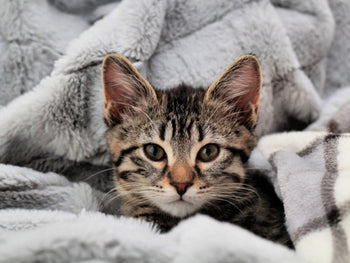
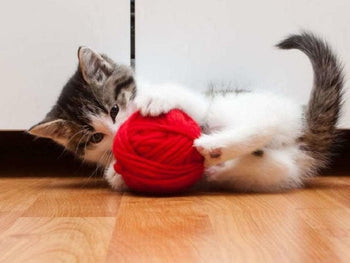

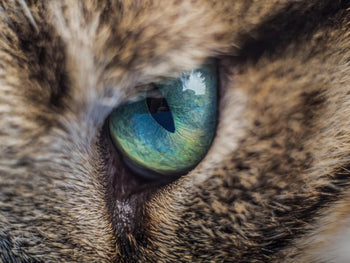


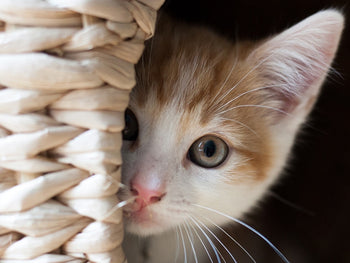
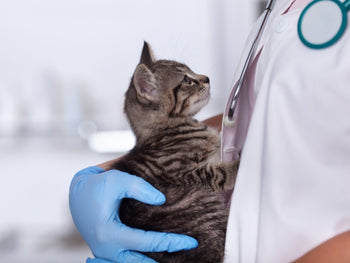
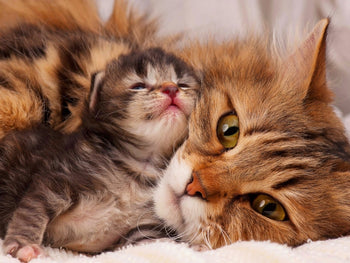

My cat shakes his head often, he has been to the vet several times they have run tests, looked in his ears and mouth. And found nothing, they thought it was allergies. I was told to give him half of a allergy pill. This worked for months, but now he is itching again. I am not sure what it could be? He won’t let me clean his ears with the cleaning fluid without me wrapping him tightly and traumatizing him. If I have to do that I will, but wasn’t sure if there were other options?